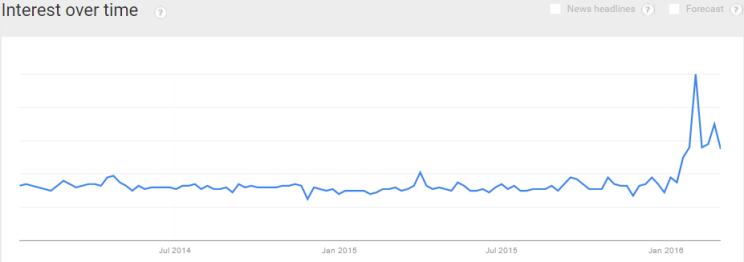 Part of the ritual of the modern presidential election season is a vigorous debate about religion and politics, especially evangelicals and politics. This year is no exception.
Part of the ritual of the modern presidential election season is a vigorous debate about religion and politics, especially evangelicals and politics. This year is no exception.
While some point to the fragmentation, split, reorganization, and secularization of the evangelical consensus, others argue that this election season represents an identity crisis if not war for the soul of evangelicalism.
How, if at all, should evangelicals engage the ongoing conversation about faith and politics?
While some may be so disillusioned with the national conversation as to abandon the use of the “evangelical” term for the rest of the election season, I argue that this election season is an opportunity for evangelicals to discuss, explain, and live out how our evangelical beliefs, practices, and identities can and should shape our political attitudes, discourses, and behaviors.
During presidential election years, there is significantly greater coverage of evangelicals in local and national media. There is also greater public interest in evangelicals. As seen in this Google Trend chart of Google searches from January 2014 to February 2016, there is a dramatic increase in searches on “evangelical” that corresponds to the election cycle.
Therefore, during this time, we have unparalleled opportunities to articulate how the Gospel affects and transforms our lives and worldviews. If politics and religion are two taboos that should not be discussed in everyday conversation, presidential election years are perhaps the only time where conversations of religion, politics, and religion in politics are tolerated if not welcomed.
Instead of dreading or avoiding these conversations, we should look forward to them and “be ready to speak up and tell anyone who asks why you’re living the way you are” (1 Peter 3:15, The Message translation).
While our pastors may differ in how or if they discuss politics from the pulpit, laymen evangelicals (that’s most of us!) can share how our faith shapes our political attitudes, motivates our social engagement, and adjusts our expectations of politics as unable to address the fundamental ills of society caused by sin and satisfy the deep longings of our hearts.
Evangelicals also have an opportunity to model Gospel-based engagement and civility. We live in an age where there are fewer political moderates, partisans live drastically different lifestyles and increasingly segregated from each other. If there is only one place where people across the political spectrum gather together each week, let it be our churches where “there is not Greek and Jew, circumcised and uncircumcised, barbarian, Scythian, slave, free; but Christ is all, and in all” (Colossians 3:11).
There is a great diversity of political attitudes among evangelicals. Evangelicals are also more radically diverse than non-evangelicals; while 79% of non-evangelicals are white, only 67% of evangelicals are white. Let us aspire and be intentional in being communities where the grace of Christ compels us to welcome, engage, and love those whose politics and worldviews may differ from our own. If unity is possible in diversity, I hope it is most evident in our faith communities.
We may disapprove of the public politicking of some evangelical leaders, be saddened by how the name of Christ is misused by candidates for political gain, and frustrated at the failure of any candidate to fully or adequately represent our priorities, beliefs, and aspirations. But I hope that the fallenness of the world around us does not lead us to exile and withdrawal during this political season.
Instead, I hope we would ask God for wisdom and humbly use the opportunities this election season to share and live out how the Good News transforms our minds, hearts, behaviors, and yes, even our politics.
Joshua Su-Ya Wu is a husband, father, pastor’s kid, and social scientist seeking to faithfully reflect Christ in all aspects of his life. He has a doctorate in Political Science from The Ohio State University, works in analytics and data science, and writes about data analytics at Reasonable Research and the intersection of faith and culture at Stuff I Didn’t Learn in Church. He currently lives in Rochester New York with his wife and two kids, and can be reached on Linkedin or on Facebook



Thank you Pastor Dave.
I appreciate the encouragement to stay engaged and make an effort to take advantage of this opportunity to share the Gospel. I’ll confess to being naturally inclined to withdraw when the climate is contentious.
I wondered how the data for this election cycle compared to earlier ones, and noticed that searches for evangelical have steadily declined over the past 8 years; this recent spike doesn’t quite return to the constant level of interest in 2007-08. I am still inclined to agree that the recent spike is driven by the election. I would also be curious to hear your thoughts on the longer term trends in this data.
Hey Andy, I have thought a lot about the last few days about what that says, and I have two hypotheses.
One possible explanation is that the trend data is indexed to total search volume on google (https://support.google.com/trends/answer/4365533?hl=en&ref_topic=4365599). Thus, perhaps what the trend is saying is that the search for evangelical is decreasing over time as a % of total Google searches. Thus the trend line may be as much about the explosion of searches on Google.
The second hypothesis I have is that the 100 interest level, which appears to be May 2008, corresponds to the release of the Evangelical Manifesto (http://www.anevangelicalmanifesto.com/), arguably one of the most important evangelical documents/statements of the last decade. Given the search volume related to that event, that may have been so significant that it has changed the relative values of other search data.
But the two explanations above are at best hypotheses given the lack of transparency about how the Google Trends trendline is calculated. That is why the picture I use was more of an illustration of greater interest in evangelicals within a narrow temporal window (of this election cycle). But if you knew more about how Google Trends work, would love to hear what you thought may be driving the seeming decline in overall search interest.
Josh – we have explored Google Trends data at work, but I doubt I know any more about the details than you do. ‘Lack of transparency’ is definitely operative when it comes to Google’s data.
Your second hypothesis makes a lot of sense; I had forgotten about that document. There’s probably something to the first hypothesis as well, although it invites further questions about why searches for evangelical did increase proportionally with overall search growth. But that just brings up back to the first point — without more detailed data, there’s not much more that can be learned.
Thanks for these insights.
Hey Andy, i think everyone has forgotten about that document (probably says a lot about the “impact” that document has had and/or the short attention span we have in the news cycle)!
And glad to know that I’m not the only person who tries to use the google data and feel the lack of transparency too, and/or that there is some mythical methodology document that I have not found or missed!
Andy and Josh,
1) Good to see my questions regarding google data expressed by people with much more insight in the use of such tools.
2) With regard to An Evangelical Manifesto: A Declaration of Evangelical Identity and Public Commitment (anevangelicalmanifesto.com/), I was recently reminded of it in my reading of Os Guinness’ Renaissance (blog.emergingscholars.org/2016/01/book-response-renaissance/). Bob Trube makes a few comments regarding An Evangelical Manifesto in his review of Renaissance (blog.emergingscholars.org/2016/03/book-review-renaissance-os-guinness/). I think that it would be helpful to give some consideration to An Evangelical Manifesto: A Declaration of Evangelical Identity and Public Commitment on the blog. I’ll ask around. Let me know if you may have interest in being part of and/or stimulating the conversation 🙂
Thanks, Josh, for this encouragement!
Thanks Peggy for the kind comments!